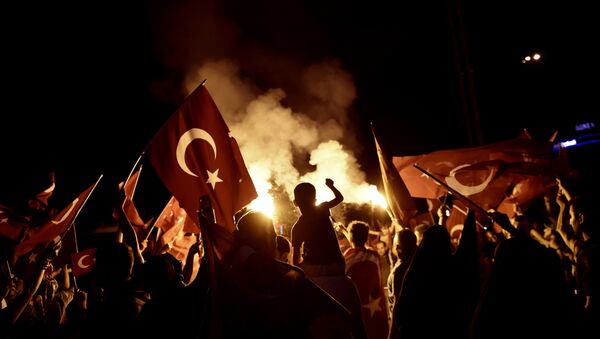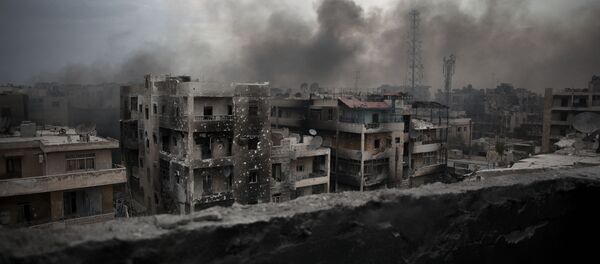Russia's reaction to the events that transpired on July 15 was markedly different from that of the West.
"When Mr. Putin called me to [express] his condolences, he didn't criticize me" for firing or detaining those suspected of being linked to the coup, Erdogan told the French daily. "All the Europeans asked me, 'why are so many soldiers detained, why have so many civil servants been dismissed?'"
For the Turkish president, this was testament to the fact that they did not understand the scale of what had happened in the country.
"Instead of showing empathy, Western leaders had the opposite reaction. This makes us sad and it is unacceptable," he noted, adding that their actions were inconsistent with the values they champion.
Erdogan also recalled how the world reacted to the deadly shooting at Charlie Hebdo's office in Paris in January 2015. Ahmet Davutoglu, who served as Turkey's prime minister at the time, along with other leaders took part in the solidarity march following the terrorist attack.
On July 15, a group of military officers tried to overthrow Erdogan, but failed. More than 300 people were killed and more than 2,100 wounded in the chaotic events that saw coup plotters trying to seize key locations in Istanbul and Ankara.
More than 60,000 people were detained, fired or placed under investigation following the coup attempt.
The Turkish government has blamed reclusive Islamic cleric Fethullah Gülen, who has lived in a self-imposed exile in the United States since 1999. Ankara has demanded that Washington extradite the former imam back to Turkey, but to no avail so far.
"I asked President Obama to extradite Gülen. He asked me for documents and evidence. I pointed out to him that when the United States asked for terrorists to be extradited, we never asked for anything and just did it," the Turkish leader observed.
As Turkey's relations with the West have deteriorated following the coup, Ankara's relationship with Moscow has improved. On August 9, Erdogan will visit Russia to meet with President Vladimir Putin in Saint Petersburg.
In his interview, the Turkish president described Russia as "both a European and an Asian country" that the West, unlike Turkey, had tried to isolate. He also said that the upcoming "meeting will mark a new step in the relations between our two countries."




